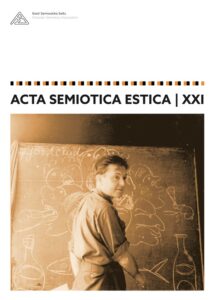“Tulevik on minevik” – afektiivne semioos Kremli Ukraina-teemalistes strateegilistes vandenõunarratiivides
“The Future is the Past” – Affective Semiosis in Kremlin Strategic Conspiracy Narratives on Ukraine
Author(s): Andreas VentselSubject(s): Sociology of Culture, Sociology of Politics, Russian Aggression against Ukraine, Russian war against Ukraine
Published by: Eesti Semiootika Selts
Keywords: strategic conspiracy narrative; strategic culture; affective semiosis; cultural psychology; war in Ukraine; cultural semiotics;
Summary/Abstract: This article explores the interplay between Russia’s strategic culture and conspiracy theories in the context of the war in Ukraine. A defining characteristic of Russian strategic culture is a perceived sense of encirclement by foreign, particularly Western, adversaries, accompanied by a belief in their efforts to destabilise and destroy Russia. Narratives of external threats are deeply entwined with Russian identity, finding expression in various conspiracy narratives orchestrated by the Kremlin. In these conspiracies, the entities labelled as “enemies” vary, ranging from nations and ideological groups to ethnic communities, yet they are often described through recurring motifs and imagery. This article uses the concepts of cultural-psychological affective semiosis and the cultural semiotic code-text to analyse the logic underlying these conspiracy theories, which constructs associative links between figures from disparate temporal and spatial contexts. The study demonstrates how strategically disseminated conspiracy theories amplify perceptions of external threat and emphasize an antagonistic “us versus them” dichotomy, deeply rooted in Russia’s cultural memory. In doing so, these narratives reinforce broader Russian geopolitical strategic narratives, including the legitimation of the war in Ukraine.
Journal: Acta Semiotica Estica
- Issue Year: 2024
- Issue No: 21
- Page Range: 10-36
- Page Count: 27
- Language: Estonian

